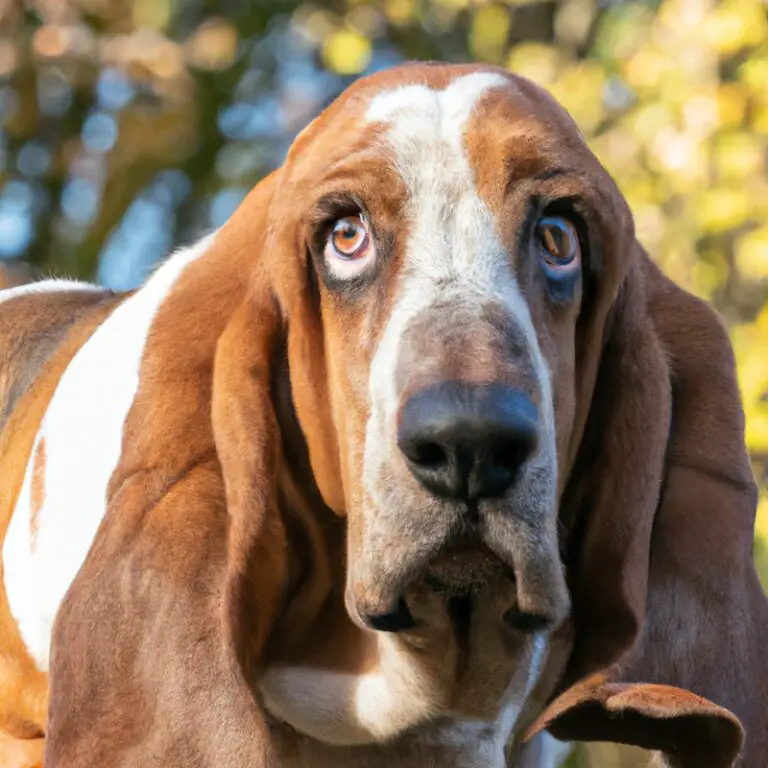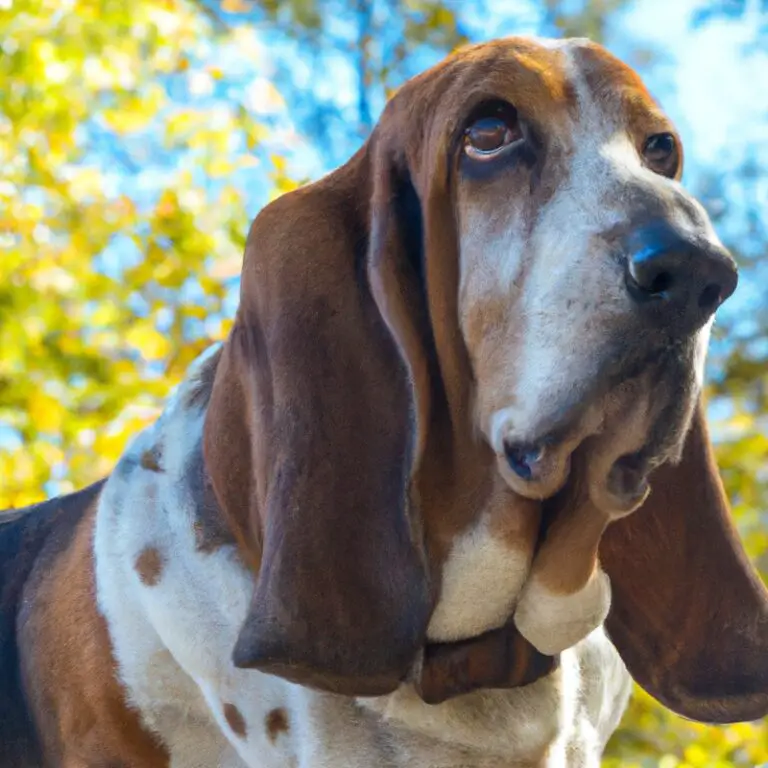How Do Basset Hounds React To Being Left Alone For An Extended Military Tour?
Key Takeaways:
- Basset Hounds can experience separation anxiety when left alone for long periods of time.
- Basset Hounds may exhibit destructive behavior, excessive barking, or become withdrawn if not properly prepared for extended time without their owner.
- Training and gradually increasing alone time can help Basset Hounds adjust to being left alone for military tours.
- Providing mental stimulation and engaging toys can help alleviate stress and keep Basset Hounds entertained during periods of separation.
Picture this: you’re embarking on an extended military tour, your heart aching as you say goodbye to loved ones, including your loyal Basset Hound.
The anticipation lingers in the air, leaving you wondering how your beloved furry friend will cope with your absence.
As an expert in Basset Hound behavior, I understand the unique temperament of these gentle giants and their deep attachment to their owners.
In this article, we’ll delve into the effects of prolonged separations on Basset Hounds, explore strategies to help them cope, and provide support for both the hounds and their owners during this challenging time.
So, let’s dive in and ensure that our Basset Hounds receive the care they need while we’re away.
| Scenario | Reaction |
|---|---|
| Being left alone for an extended military tour | Potential reactions of Basset Hounds |
| Loneliness and depression | Increase in separation anxiety, excessive barking, destructive behavior |
| Changes in routine and environment | Stress, signs of agitation, house soiling |
| Missing their owner | Increased vocalization, searching for their owner, loss of appetite |
Understanding Basset Hounds
Overview of Basset Hound temperament
Basset Hounds are known for their laid-back and easygoing temperament. They are generally gentle, friendly, and get along well with people and other pets.
They are also known to be loyal and attached to their owners, forming strong bonds.
Bassets are usually not aggressive, but they can be stubborn at times, which may affect training. Additionally, they have a tendency to be vocal, using their deep and unique howl to communicate.
Bassets are often described as affectionate, loving, and good-natured companions.
Basset Hound’s attachment to their owners
Basset Hounds have a strong attachment to their owners. They are known for their loyal and affectionate nature.
These dogs thrive on human companionship and form deep emotional bonds with their owners.
Bassets enjoy being close to their humans and may even become anxious or distressed when separated for long periods. It’s important for owners to provide love, attention, and quality time with their Basset Hounds to nurture their attachment and ensure their well-being.
Regular interaction, bonding activities, and positive reinforcement can strengthen the bond between a Basset Hound and their owner.

Effects of Being Left Alone
Signs of separation anxiety in Basset Hounds
When Basset Hounds experience separation anxiety, they may exhibit certain signs.
These can include excessive barking or howling, destructive behavior like chewing furniture or scratching doors, and inappropriate elimination.
Additionally, they may become clingy or overly dependent when their owners are present, and show signs of distress when they anticipate being left alone.
Other signs may include loss of appetite, restlessness, and excessive drooling.
It’s important to recognize and address these signs to help your Basset Hound cope with separation anxiety.

Behavioral changes when left alone for extended periods
When Basset Hounds are left alone for extended periods, they can exhibit various behavioral changes. Some common changes include increased vocalization such as barking or howling, destructive chewing or digging, and house soiling.
They may also become anxious, restless, or depressed.
Additionally, Basset Hounds may lose their appetite or experience weight loss. It’s important to understand these behaviors and address them with appropriate coping strategies and support for your furry friend.
Understanding the emotional toll on Basset Hounds
Basset Hounds are highly sensitive and loyal dogs, so being left alone for extended periods can take an emotional toll on them.
They may experience separation anxiety, which can lead to behavioral changes such as excessive barking, destructive chewing, and house soiling.
It’s important to understand that these behaviors are their way of expressing distress and should be addressed with patience and compassion.
Providing a comforting environment, engaging in stimulating activities, and seeking professional help if needed can help alleviate the emotional toll on Basset Hounds.
Remember, they thrive on love and attention, so reassuring them with extra care and patience is crucial during times of separation.
Coping Strategies for Basset Hounds
Creating a comforting environment
Creating a comforting environment for your Basset Hound is essential when they are left alone for extended periods.
Here are some tips:
- Provide a cozy and secure space for your dog, such as a crate or a designated area in your home.
- Leave familiar objects with your scent, like a blanket or piece of clothing, to provide reassurance.
- Use calming aids, such as pheromone diffusers or calming music, to help soothe your dog’s anxiety.
- Ensure your dog has access to fresh water and a comfortable bed.
- Establish a consistent daily routine to give your dog a sense of predictability and stability.
By creating a comforting environment, you can help alleviate your Basset Hound’s stress and anxiety when you’re away.

Engaging in physical and mental stimulation activities
To keep your Basset Hound mentally and physically stimulated when you’re away, there are a few activities you can try.
Leaving puzzle toys or treat dispensers can keep them entertained and challenged.
Engaging in interactive games like hide-and-seek or fetch can provide mental stimulation and exercise.
Consider puzzle-solving games or training sessions to keep their minds active.
Daily walks and playtime with other dogs can also help fulfill their exercise needs.
Remember, a tired Basset Hound is usually a happy and content one!
Using interactive toys and puzzles
Interactive toys and puzzles can be a great way to keep your Basset Hound mentally stimulated and entertained when they are left alone for extended periods.
These toys are designed to challenge their problem-solving skills and engage their natural instincts.
Some popular options include treat-dispensing toys, puzzle feeders, and interactive ball launchers.
These toys provide both mental and physical stimulation, helping to alleviate boredom and reduce the chances of destructive behavior.
Just make sure to choose toys that are suitable for your Basset Hound’s size and chewing habits.
Preparing Basset Hounds for Extended Separations
Gradual training for being alone
To help your Basset Hound adjust to being alone, gradual training is key.
Start by leaving them alone for short periods and gradually increase the time.
Make sure to provide a comfortable space with their favorite toys and bedding.
Use positive reinforcement and rewards when they remain calm.
Establish a predictable routine, including regular feeding, exercise, and bathroom breaks.
Seek professional help if needed.
Remember, patience and consistency are essential in training your Basset Hound for extended periods of solitude.
Introducing a routine and predictability
Introducing a routine and predictability is essential for helping Basset Hounds cope with extended separations.
Dogs thrive on consistency, so establishing a daily schedule can provide them with a sense of stability.
This includes consistent feeding, potty breaks, and exercise times.
Additionally, creating a predictable environment with familiar sights, sounds, and smells can help alleviate their anxiety.
By establishing a routine and maintaining predictability, you can help your Basset Hound feel more secure and comfortable during your absence.
Seeking professional help if necessary
If you notice that your Basset Hound is struggling with being left alone for extended periods, seeking professional help can be a valuable option.
A veterinarian or animal behaviorist can provide expert guidance to address separation anxiety and other behavioral issues.
They may recommend training techniques, behavior modification strategies, or even medication to help your Basset Hound cope better.
Professional help can make a significant difference in your dog’s well-being and ensure that they receive the support they need during your absence.
Remember to consult with a professional who has experience working with Basset Hounds or similar breeds.
Seeking Support for Basset Hounds and Their Owners
Involving family, friends, or neighbors for assistance
When you’re faced with an extended military tour and need help caring for your Basset Hound, involving family, friends, or neighbors can be a lifesaver.
Reach out to loved ones who are familiar with your dog’s needs and are willing to provide assistance.
They can help with feeding, walking, and even offering companionship to your furry friend while you’re away.
Having trusted individuals support you and your Basset Hound can help alleviate some of the stress and worry during your absence.
Exploring professional pet sitting services
Professional pet sitting services can provide peace of mind when you are away. These services offer reliable and experienced caregivers who will ensure your Basset Hound receives the care and attention they need.
They can visit your home, feed your pet, take them for walks, and provide companionship.
By hiring a professional pet sitter, you can be confident that your Basset Hound will be in good hands while you are gone. Additionally, these services often offer additional benefits such as updates and photos to keep you connected to your furry friend.
Connecting with local Basset Hound communities
Connecting with local Basset Hound communities is a great way to find support and resources for both you and your furry friend. Here are some simple steps to get started:
- Join online forums and social media groups dedicated to Basset Hounds. You can connect with other owners, ask questions, and share experiences.
- Attend local Basset Hound meetups or events. This is a fantastic opportunity to meet other Basset Hound enthusiasts, exchange tips, and even arrange playdates for your dogs.
- Reach out to local Basset Hound breeders or rescue organizations. They may have valuable contacts and can provide information on local events or resources.
- Consider joining a Basset Hound club or organization in your area. These groups often host activities, training sessions, and competitions that you and your Basset Hound can participate in together.
Remember, connecting with local Basset Hound communities can provide you with a network of support and a sense of belonging, all while enhancing the well-being of your Basset Hound.
Reunion and Adjustment Period
Easing the transition back home
Easing the transition back home for your Basset Hound after an extended military tour is essential for their well-being. Upon returning, provide extra attention and reassurance to help them feel secure and loved.
Monitor their behavior for any lasting effects and address them promptly.
Establishing a routine and maintaining predictability will assist in their adjustment. Remember that each dog is unique, so be patient and understanding during this time.
With your care and support, your Basset Hound will soon feel right at home again.
Offering extra attention and reassurance
During periods of extended separation, it’s important to offer your Basset Hound extra attention and reassurance. Spend quality time with them, engaging in activities they enjoy.
Show them affection and provide comforting physical contact like gentle petting and hugging.
Offer reassurance through a calm and soothing tone of voice. Maintain a predictable routine to give them a sense of security.
Consider using a pheromone diffuser or playing calming music to create a soothing environment.
Remember, your Basset Hound relies on your presence and love, so be there for them during this challenging time.
Monitoring and addressing any lasting effects
Monitoring and addressing any lasting effects is essential for the well-being of your Basset Hound.
Keep an eye on their behavior and look for signs of anxiety or distress.
If you notice any changes, consult with a professional trainer or veterinarian to develop a plan.
Providing extra love and attention, engaging in exercise and mental stimulation, and creating a comforting environment can help alleviate any lasting effects.
Remember, every dog is unique, so be patient and understanding throughout the process.
Final Verdict
Basset Hounds are known for their loving and loyal nature, making them highly attached to their owners.
Being left alone for an extended military tour can have a significant impact on their emotional well-being, leading to signs of separation anxiety and behavioral changes.
However, there are coping strategies that can help alleviate these issues, such as creating a comforting environment, engaging in physical and mental stimulation activities, and using interactive toys.
Gradual training, establishing routines, and seeking professional help can also prepare Basset Hounds for extended separations.
Additionally, involving support from family, friends, or professional pet sitting services can provide much-needed assistance.
During the reunion and adjustment period, extra attention and reassurance need to be offered, while carefully monitoring and addressing any lasting effects.
Overall, understanding and addressing the emotional toll on Basset Hounds left alone for extended military tours is essential for their well-being.







